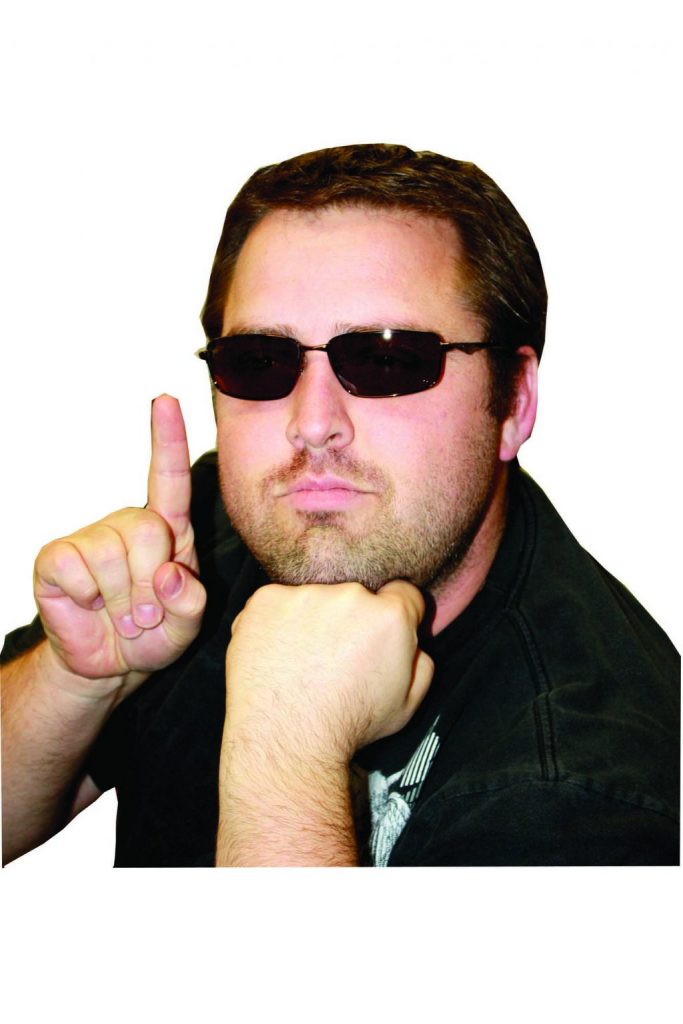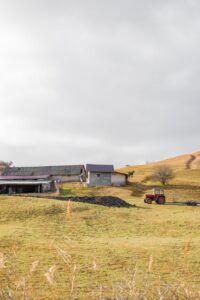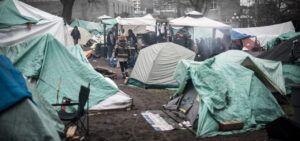Voting rights in “The land of the free”
America has long been the “Land of the Free and the Home of the Brave,” we are because of the amazing republic we live in. I heard America described as a, “light on a hill,” or “beacon of shining hope.” But our way of life is being tested by one absolute truth: our generation is failing to vote. This has long been the case. How do we change it though? How do we go from a generation that is stagnant in the representation we have in Washington, which we are now, to a generation that fights for the rights we have and cherishes the freedoms of our great land.

This archived article was written by: James Justice
America has long been the “Land of the Free and the Home of the Brave,” we are because of the amazing republic we live in. I heard America described as a, “light on a hill,” or “beacon of shining hope.” But our way of life is being tested by one absolute truth: our generation is failing to vote. This has long been the case. How do we change it though? How do we go from a generation that is stagnant in the representation we have in Washington, which we are now, to a generation that fights for the rights we have and cherishes the freedoms of our great land.
The issue of voting rites in America has been a very heated issue since conception; eligibility is set by state and federal governments. When the constitution was written only “white males” that owned land, or had enough wealth to be taxed could vote, (women and blacks, at first, were only allowed to vote in four states, not in the federal election), and there were also religious prerequisites. These terms were originally in the Articles of Confederation and carried over to the present day Constitution. Even though the constitution said that we were a government by the people. In reality we were a white, male, landowner’s- only club.
Over the last two centuries there have been many changes to the voting rights of Americans,
1790 Only white, male adult property owners have the right to vote.
1810 Last religious prerequisite for voting is eliminated.
1850 Property ownership and tax requirements eliminated by 1850. Almost all adult, white males could vote.
1855 Connecticut adopts the nation’s first literacy test for voting. Massachusetts follows suit in 1857. The tests were implemented to discriminate against Irish-Catholic immigrants.
1870 The 15th Amendment is passed. It gives former slaves the right to vote and protects the voting rights of adult male citizens of any race.
1889 Florida adopts a poll tax. Ten other Southern states will implement poll taxes.
1890 Mississippi adopts a literacy test to keep African Americans from voting. Numerous other states—not just in the South—also establish literacy tests. However, the tests also exclude many whites from voting. To get around this, states add grandfather clauses that allow those who could vote before 1870, or their descendants, to vote regardless of literacy or tax qualifications.
1913 The 17th Amendment calls for members of the U.S. Senate to be elected directly by the people instead of state legislatures.
1915 Oklahoma was the last state to append a grandfather clause to its literacy requirement (1910). In Guinn v. United States the Supreme Court rules that the clause is in conflict with the 15th Amendment, thereby outlawing literacy tests for federal elections.
1920 The 19th Amendment guarantees women’s sufferage (including the right to vote in federal elections.)
1944 The Supreme Court outlaws “white primaries” in Smith v. Allwright (Texas). In Texas, and other states, primaries were conducted by private associations, which, by definition, could exclude whomever they chose. The court declares the nomination process to be a public process bound by the terms of 15th Amendment.
1957 The first law to implement the 15th amendment, the Civil Rights Act, is passed. The act set up the Civil Rights Commission—among its duties is to investigate voter discrimination.
1960 In Gomillion v. Lightfoot (Alabama) the Court outlaws “gerrymandering.”
1961 The 23rd Amendment allows voters of the District of Columbia to participate in presidential elections.
1964 The 24th Amendment bans the poll tax as a requirement for voting in federal elections.
1965 Dr. Martin Luther King Jr., mounts a voter registration drive in Selma, Alabama to draw national attention to African-American voting rights.
1965 The Voting Rights Act protects the rights of minority voters and eliminates voting barriers such as the literacy test. The Act is expanded and renewed in 1970, 1975, and 1982.
1966 The Supreme Court, in Harper v. Virginia Board of Elections, eliminates the poll tax as a qualification for voting in any election. A poll tax was still in use in Alabama, Mississippi, Texas, and Virginia.
1966 The Court upholds the Voting Rights Act in South Carolina v. Katzenbach.
1970 Literacy requirements are banned for five years by the 1970 renewal of the Voting Rights Act. At the time, eighteen states still have a literacy requirement in place. In Oregon v. Mitchell, the Court upholds the ban on literacy tests, which is made permanent in 1975. Judge Hugo Black, writing the court’s opinion, cited the “long history of the discriminatory use of literacy tests to disenfranchise voters on account of their race” as the reason for their decision.
1971 The 26th amendment sets the minimum voting age at 18.
1972 In Dunn v. Blumstein, the Supreme Court declares that lengthy residence requirements for voting in state and local elections is unconstitutional and suggests that 30 days is an ample period.
1995 The Federal “Motor Voter Law” takes effect, making it easier to register to vote.
2003 Federal Voting Standards and Procedures Act require states to streamline registration, voting, and other election procedures.
In no way are the changes I’ve listed here all of the changes that have been enacted, but you can see that people have been working towards voting rights.
Why vote? There are many reasons to vote. It doesn’t matter if your black or white,
a boy a girl, you have the rite, or ‘the obligation’ to vote. We need to remember that freedom, isn’t free. While most of us will never have to defend our freedom, by voting we can make sure that there will always be people here defending this great country.
What do we vote for?? There are several elections in our country that we can vote for. First, local elections. These are good elections to get involved with. The candidates are “home grown” politicians. These candidates talk about local issues and take on local problems, they are the first level of elected officials.
Second, state government. These are the people that run the state. They develop state laws and ordinances that we the people live by.
Third level is the federal government, most popular elected official being the president of the United States. The federal government controls, well, the federal government. The House, Senate, and President all should be working together to make America a better land.
Voting gives us a way to tell local, state, and federal elected officials that we’re not pleased. It’s a way for us to get the “old” out and put in the “new.”
In November, there is a very important election, The Presidency, (there are also many other small local and state elections.) The President is the leader of the free world. Many believe that the American people have been lied to with this President. Too many hope and change turned out to be “debt and class-warfare.” What is their option? Vote. If they can get enough “electoral” votes, the people that don’t agree with him can have him voted out of office.
Voting is our way as a peaceful society to change what our officials are doing. One of the most important things we can do is to vote; it’s our rite, our duty, our obligation; because freedom isn’t free.




